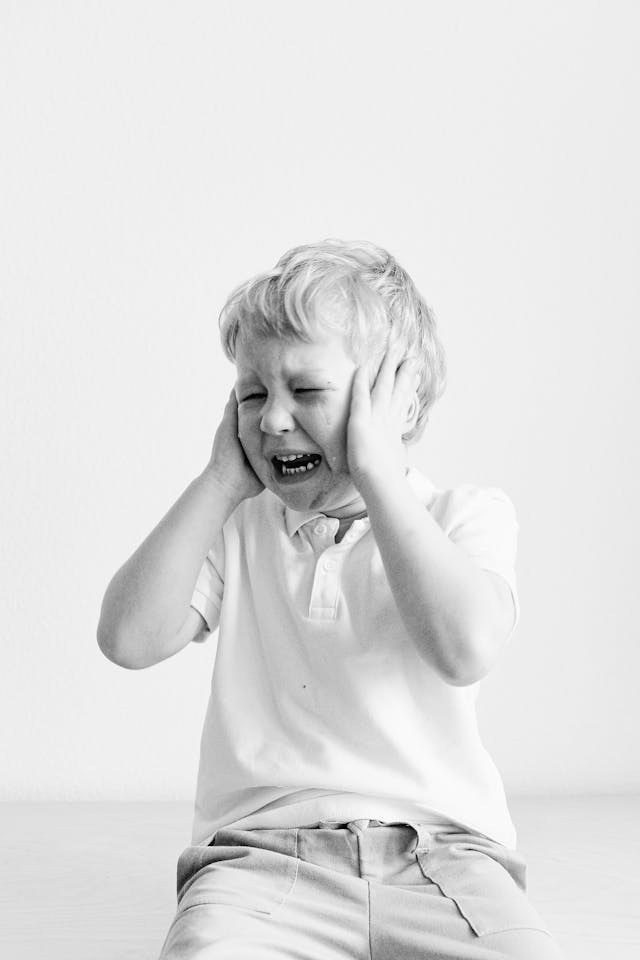 Misophonia in children is a growing area of concern among parents, educators, and mental health professionals. This neurological condition, characterized by intense emotional reactions to specific sounds, can affect a child’s emotional well-being, academic performance, and social development. While often misunderstood or misdiagnosed, recognizing the early signs of misophonia in children and addressing them with supportive strategies can significantly improve a child’s quality of life.
Misophonia in children is a growing area of concern among parents, educators, and mental health professionals. This neurological condition, characterized by intense emotional reactions to specific sounds, can affect a child’s emotional well-being, academic performance, and social development. While often misunderstood or misdiagnosed, recognizing the early signs of misophonia in children and addressing them with supportive strategies can significantly improve a child’s quality of life.
What Is Misophonia?
Misophonia, literally meaning “hatred of sound,” involves strong emotional responses such as anger, panic, or disgust in reaction to specific auditory triggers. These responses are not simply irritations but are intense and involuntary, often affecting daily functioning. In children, the condition may manifest differently than in adults and can often be mistaken for behavioral problems, anxiety, or sensory processing issues.
Common Misophonia Triggers in Children
Children with misophonia are often sensitive to soft, repetitive human-generated sounds. These can include:
- Chewing or slurping during meals
- Pencil tapping or clicking in classrooms
- Loud breathing or sniffing
- Foot tapping or rhythmic finger movements
- Environmental sounds like ticking clocks or rustling papers
The intensity of the reaction can vary, but these sounds often lead to feelings of distress, anger, or even fear. Some children may lash out verbally, cover their ears, leave the room abruptly, or experience anxiety in anticipation of these sounds.
Recognizing the Symptoms of Misophonia in Children
Identifying misophonia in children requires careful observation and an understanding that the child’s reaction is not a behavioral choice but a neurological response. Common symptoms include:
- Disproportionate anger or frustration in response to everyday sounds
- Increased anxiety or dread in certain settings (like the dinner table or classroom)
- Avoidance behaviors such as skipping meals or refusing to go to school
- Covering ears or using headphones to block out noise
- Difficulty concentrating when trigger sounds are present
It’s also common for these children to feel embarrassed or ashamed of their reactions, which can lead to social withdrawal or low self-esteem.
How Misophonia Affects a Child’s Life
Misophonia can impact nearly every area of a child’s life if left unaddressed:
- Academically: Difficulty focusing in noisy classrooms or distress from classmates’ sounds can hinder learning.
- Socially: Children may avoid peers, feel isolated, or struggle to make friends due to their reactions.
- Emotionally: Persistent stress and anger can contribute to mood swings or symptoms of anxiety and depression.
- At home: Mealtimes and family interactions may become sources of conflict and discomfort.
Supportive Strategies for Parents and Caregivers
While there is no one-size-fits-all treatment for misophonia, there are many ways parents and caregivers can support their child:
- Validation: Acknowledge your child’s experience without minimizing it. Saying “I understand that this sound bothers you” builds trust and safety.
- Sound Accommodations: Use white noise machines, noise-canceling headphones, or calming background music during trigger situations.
- Routine Planning: Establish predictable routines and prepare children in advance for potentially triggering situations.
- Safe Zones: Create a quiet, calming space where the child can go when overwhelmed.
- Behavioral Techniques: Work with a specialist on coping strategies like deep breathing or progressive muscle relaxation.
When to Seek Professional Help
If your child’s misophonia is significantly interfering with daily life, it’s essential to consult a professional who understands the condition. Misophonia Cognitive Retraining Therapy (MCRT), developed by Stephen Geller Katz LCSW-R, is one such approach that can help children learn to manage their triggers and responses more effectively. Early intervention can prevent the condition from worsening and provide children with the tools they need to thrive.
Helping Your Child Thrive with Misophonia
Misophonia is manageable, especially when diagnosed early and approached with empathy and appropriate support. By recognizing the signs and seeking the right help, you can empower your child to navigate their world with greater ease and confidence.
Contact an Expert in Misophonia Treatment
If your child is struggling with misophonia, professional support is available. Stephen Geller Katz, LCSW-R at the Misophonia Cognitive Center™, offers online therapy sessions tailored to children and families.
With decades of experience and fluency in five languages, Dr. Katz provides accessible and inclusive care for clients around the world.
Contact Information
MISOPHONIA COGNITIVE CENTER™
Stephen Geller Katz LCSW
19 West 34th Street
Penthouse Floor
New York, NY 10001
646-585-2251
